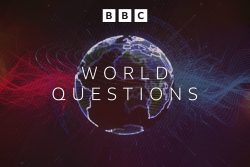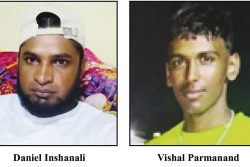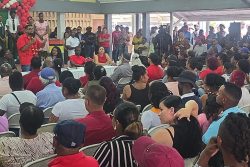While much of our attention, with regard to events in the wider region, has recently been on the re-election of President Hugo Chávez in Venezuela and the ongoing and cautious process of change in Cuba, significant developments in not-so-far-away Colombia have not merited as much comment.
True, columnist Andrés Oppenheimer did write on September 16 last about Colombian President Juan Manuel Santos’ bold initiative to enter into peace negotiations with his country’s revolutionary Marxist-Leninist guerrillas, the FARC, opining that the talks “could have widespread international repercussions.” In this respect, he focused on the possibility that the US government could be driven “to remove Cuba from its list of terrorist nations.” This would be because Cuba, a key mediator in the process, which began officially in Norway last week, could hardly be kept on the US State Department’s annual list of “sponsors of terrorism” if the FARC, some of whose members Cuba is accused of harbouring, eventually agrees to peace and is given political legitimacy in Colombia.
That is not going to happen overnight though. The FARC has been waging war against the Colombian state since 1964; its activities include murder, drug trafficking, the use of child soldiers, kidnapping and extortion. As such, it has been deemed a terrorist organisation by the Colombian government, as well as the European Union, the United States and other countries, even if it is not so regarded by Latin American governments such as Argentina, Brazil, Ecuador, Nicaragua and Venezuela.
Nevertheless, that the Colombian government and the FARC could have arrived at the point where they agreed to the Oslo talks, after almost 50 years of unrelenting violence and after more than six months of secret discussions, brokered mainly by Cuba and Norway, must be seen as a major breakthrough. It would appear, moreover, that both parties have learnt from past mistakes and previous failed attempts at negotiation. Both sides seem to recognise the need to tackle Colombia’s profound political and economic problems, with the government, in particular, acknowledging the imperative of social change to negate the corrosive effects of inequality and inequity.
President Santos’s predecessor, Alvaro Uribe, did much to weaken the FARC militarily during his two terms. But Mr Santos, who served as Defence Minister under Mr Uribe, is keen to try a different approach, turning to dialogue even as Colombian troops maintain the pressure on the FARC. He has accordingly invested a huge amount of his personal political capital in the initiative, which for the first time in decades is giving rise to cautious optimism that it might succeed. The FARC, perhaps reeling from the deaths of key leaders, particularly in the past four years, might just be ready to negotiate a settlement.
But neither side will want to appear weak. Even as they sat down in Oslo to discuss a five-point agenda, focusing on the drugs trade, victims’ rights and compensation, agrarian reform, FARC participation in politics and, of course, how to end the war, no cease-fire was announced by either party and hostilities in the field continued. Indeed, as the lead negotiators for the government and the FARC made a joint appearance at the end of the talks, the guerrillas’ representative warned that peace did not mean that the guns would fall silent unless it included the transformation of the structure of the state. Indeed, all eyes have to be focused on what lies beyond a cease-fire to ensure a lasting peace.
The good news from Oslo is that there was agreement on continuing negotiations in Havana, on November 5, starting with the thorny issue of agrarian reform and land ownership in rural areas. This next phase will be critical in the process of building trust and moving the tone of the negotiations towards more conciliatory language. At the same time, it will be important for there to be a decrease in military activity by both sides if the process, still at a relatively embryonic stage, is to be ultimately successful.
It will not be easy, least of all for President Santos, who, in spite of his strong political will, has critics aplenty in Colombia, including Mr Uribe. The key to it all may well be if Colombians – with as much as 80 percent of the population currently opposed to an eventual amnesty according to some polls – are willing to accept the FARC, with its bloody history of terror, assassinations and kidnappings and its involvement in narco-trafficking, as a legitimate player in the political life of the country.
The process of dialogue will therefore require enormous discretion and concessions by both sides. It could be a long and painful process but really, dialogue is the only hope for social justice and peace.








